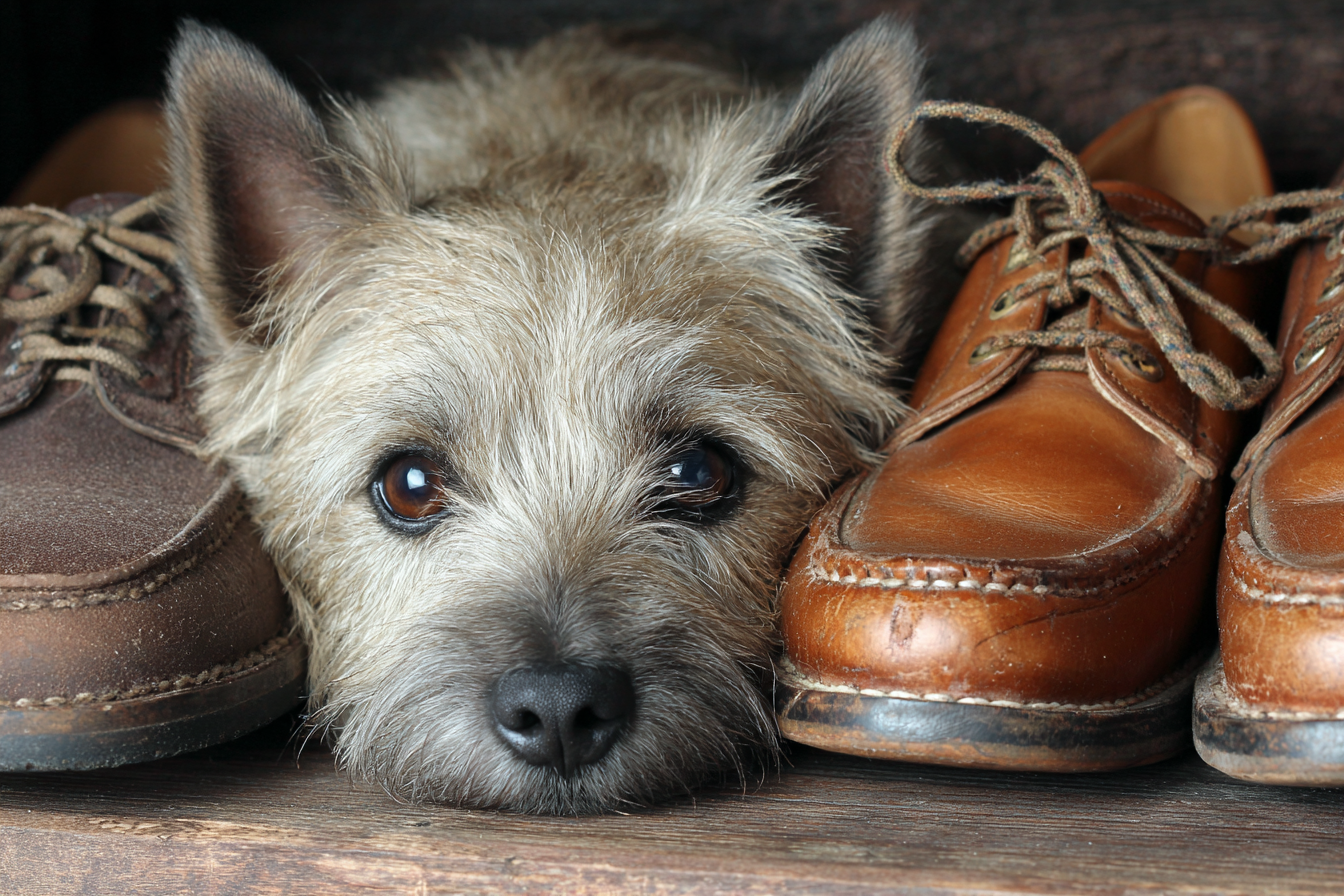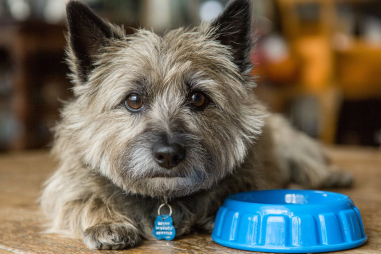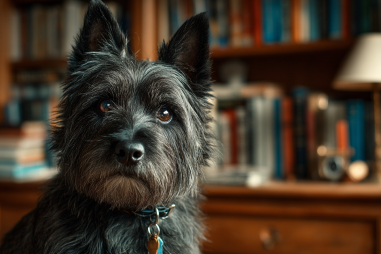Cairn Terriers are beloved for their spirited, intelligent, and independent nature. Yet, these same traits can sometimes lead to behavior challenges that leave owners wondering how to best manage their lively companions. From excessive barking to digging and chewing, understanding the roots of these behaviors and how to address them effectively can foster a happier relationship for both dog and owner. Let’s explore common Cairn Terrier behavior problems and proven strategies to help you nurture positive habits in your furry friend.
Typical Behavior Problems in Cairn Terriers
Cairn Terriers are energetic and curious dogs, but their zest can sometimes manifest in less desirable ways. Common behavior issues reported by owners include:
- Excessive barking: Known for being vocal, Cairns can bark persistently if bored, anxious, or trying to alert their owners.
- Digging: This breed has a natural instinct to dig, often leading to uprooted flower beds or holes in the yard.
- Chewing: When understimulated or anxious, Cairns may chew furniture, shoes, or other household items.
- Separation anxiety: These terriers can become distressed when left alone for long periods, leading to destructive behavior and vocalization.
- Stubbornness or independence: While their intelligence is a wonderful trait, Cairns sometimes resist training or commands if not motivated properly.
What Causes These Behavior Issues?
Understanding why your Cairn Terrier exhibits certain behaviors is key to addressing them effectively. Several factors contribute to these common problems:
- Instinctual drives: Cairns were bred as working dogs to hunt and chase vermin. Their strong prey drive encourages digging and chasing small animals, sometimes resulting in unwanted behaviors at home.
- Lack of physical exercise: Without enough activity, Cairns can become restless and bored, leading to excessive barking, chewing, and digging as outlets for their energy.
- Insufficient mental stimulation: Intelligent and curious, these dogs require mental challenges; dull environments can encourage destructive habits.
- Fear or anxiety: Stressful situations such as being left alone, loud noises, or unfamiliar people may trigger anxiety-driven behavior.
- Inconsistent training: This independent breed needs clear, consistent boundaries. Without them, confusion or resistance can develop.
Training Techniques to Curb Unwanted Behavior
Addressing problem behaviors in Cairn Terriers starts with effective training strategies tailored to their personality. Here are some approaches that work well:
Consistency is Critical
Establish clear rules and enforce them consistently. Whether it’s a no-barking boundary or restricted digging zones, your Cairn will benefit from knowing exactly what’s expected.
Use Positive Reinforcement
Reward good behavior with treats, praise, or playtime. For example, when your Cairn stops barking on command or chooses not to dig, immediately reward the calm behavior.
Redirect Undesired Behaviors
When you notice your Cairn Terrier engaging in problem behavior, redirect their focus to a more acceptable activity. For instance, offer a chew toy when they start gnawing on furniture.
Teach Basic Commands
Commands like “sit,” “stay,” “quiet,” and “leave it” provide you with control in various situations. Regular training sessions reinforce your bond and keep their mind engaged.
Use Timeouts Sparingly
Briefly removing your dog from a situation after a misbehavior can help, but avoid harsh punishment, which can increase anxiety or stubbornness.
The Role of Exercise and Mental Stimulation
Exercise and mental challenges are fundamental to preventing many behavior problems. Here’s why:
- Physical activity: A well-exercised Cairn Terrier tends to be calmer and less destructive. Daily walks, playtime, and opportunities to run off-leash in safe areas help burn excess energy.
- Mental stimulation: Puzzle toys, obedience training, scent games, and agility training tap into their sharp minds and reduce boredom-induced behaviors.
Try to provide at least 30 to 60 minutes of varied exercise and mental engagement every day to keep your Cairn balanced and content.
Harnessing Positive Reinforcement
Positive reinforcement is key when working with a Cairn Terrier because of their instinctive independence. Rewarding desirable behaviors encourages repetition much better than punishment deters problems.
Some tips for effective positive reinforcement:
- Use high-value treats that your Cairn loves for training sessions.
- Be timely with your rewards, giving them immediately after the good behavior.
- Include affection and verbal praise to strengthen your bond.
- Gradually phase treats out as learned behaviors become habits, but maintain praise.
Handling Separation Anxiety and Fear
Separation anxiety can lead to damage and distress, and it’s common in breeds like Cairn Terriers that bond closely with their owner. To ease their worry:
- Gradually acclimate your dog to alone time by starting with short departures and increasing length over days or weeks.
- Provide comforting items like a favorite toy, blanket, or an item with your scent.
- Keep departures and returns low-key to reduce excitement or stress.
- Consider crate training, but ensure the crate is a positive, safe space—not a punishment.
- For fear-based behaviors triggered by noises or unfamiliar people, desensitization and counter-conditioning techniques can help build confidence.
In stubborn or severe cases, consulting with a professional is encouraged.
When Should You Call in a Professional?
If challenges persist despite your best efforts, or if your Cairn Terrier displays aggression, destructive behavior, or severe anxiety, seeking professional help is a wise decision. Certified dog trainers or animal behaviorists bring expertise to:
- Identify underlying causes of behavior issues.
- Develop customized behavior modification plans.
- Provide hands-on guidance for you and your dog.
- Recommend medical evaluation if there’s any health-related behavioral component.
Preventative Strategies for a Well-Behaved Cairn Terrier
Proactively addressing behavior problems is often easier than correcting them later. Some preventative tips include:
- Early socialization: Exposure to varied people, places, and experiences from puppyhood helps develop a confident, well-adjusted adult dog.
- Regular training: Establish consistent routines and commands early to build respectful behavior.
- Engagement: Offer plenty of physical activity and mental tasks to satisfy natural instincts and energy levels.
- Safe environment: Provide chew toys, digging spots, and designated play areas to redirect natural behaviors safely.
- Monitor changes: Stay alert to shifts in behavior that might signal anxiety, illness, or boredom.
Real-Life Success Stories
Many Cairn Terrier owners have seen remarkable improvements by applying these strategies. For example, a family struggling with their Cairn’s constant barking found success by increasing daily exercise and teaching the “quiet” command paired with treats. Another owner managed persistent digging by creating a designated digging box filled with sand and hiding toys to make it inviting. With patience and consistency, the dog’s unwanted digging in the garden ceased.
One particularly anxious Cairn benefited greatly from gradual separation training combined with puzzle toys and calming pheromone diffusers, reducing destructive behaviors significantly. These cases highlight that every dog can improve with tailored approaches and understanding.
Maintaining Balanced Behavior Over Time
Behavior management is an ongoing journey. Cairn Terriers thrive in environments where their physical, emotional, and mental needs are regularly met. Keep reinforcing positive behaviors, providing adequate exercise, and nurturing your bond through training and play.
Remember to celebrate small victories and be patient through setbacks—your enthusiastic terrier will appreciate the effort and respond with loyalty and affection.







